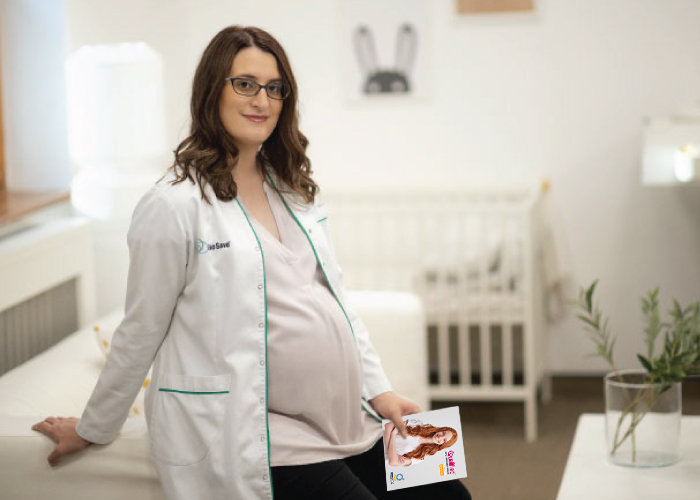- Μονήρης κύηση
- Δίδυμη κύηση
- Εξωσωματική γονιμοποίηση
- Κύηση με ωάριο δότριας
Ονομάζομαι Milica Kovjenić, Master of Pharmacy - Medical Biochemist. Τα τελευταία πέντε χρόνια της εργασίας μου στο Bio Save Laboratory, το επαγγελματικό μου ενδιαφέρον έχει προσανατολιστεί αποκλειστικά στην προγεννητική διάγνωση. Παρά τη συνεχιζόμενη εκπαίδευσή μου και την παρακολούθηση των τελευταίων παγκόσμιων τάσεων στον τομέα, κατά τη διάρκεια της εγκυμοσύνης μου, είχα πολλαπλές ερωτήσεις για τον γυναικολόγο μου σχετικά με γενετικές και αναπτυξιακές ανωμαλίες. Ακολουθώντας τις οδηγίες και τις σαφείς συστάσεις των ειδικών σε αυτόν τον τομέα, οι μη επεμβατικές εξετάσεις παρείχαν σε όλες τις εγκύους, εμού συμπεριλαμβανομένης, μια πιο άνετη και ξέγνοιαστη εγκυμοσύνη. Θα προσπαθήσουμε να απαντήσουμε σε όλες τις ερωτήσεις σας. Εάν έχετε επιπλέον ερωτήσεις, εκτός από αυτές που βρίσκονται στον ιστότοπο, μη διστάσετε να επικοινωνήσετε μαζί μας απευθείας στο info@biosave.gr . Η ομάδα μου και εγώ θα χαρούμε να σας δώσουμε σαφείς απαντήσεις σε όλες τις ερωτήσεις σας.

